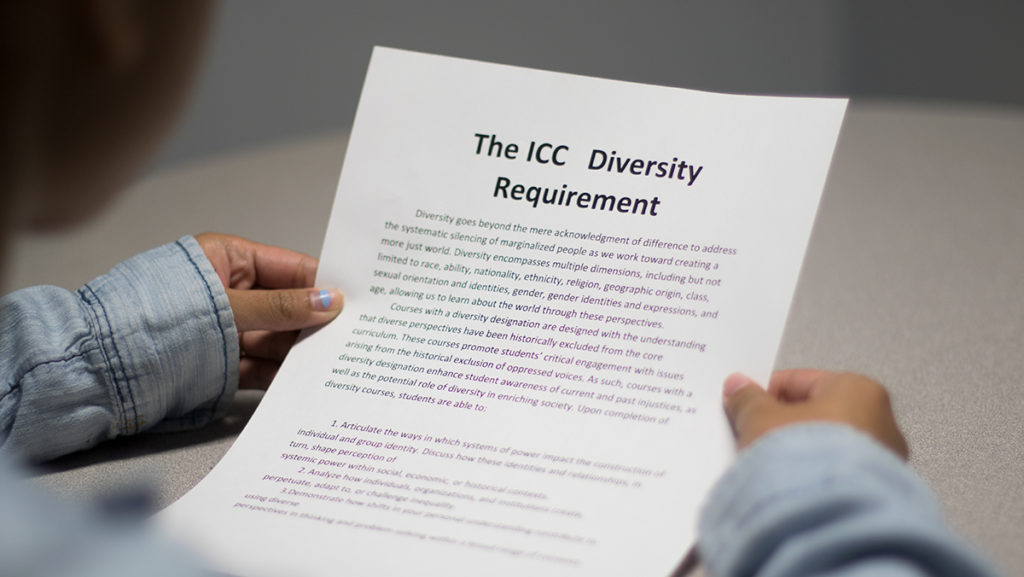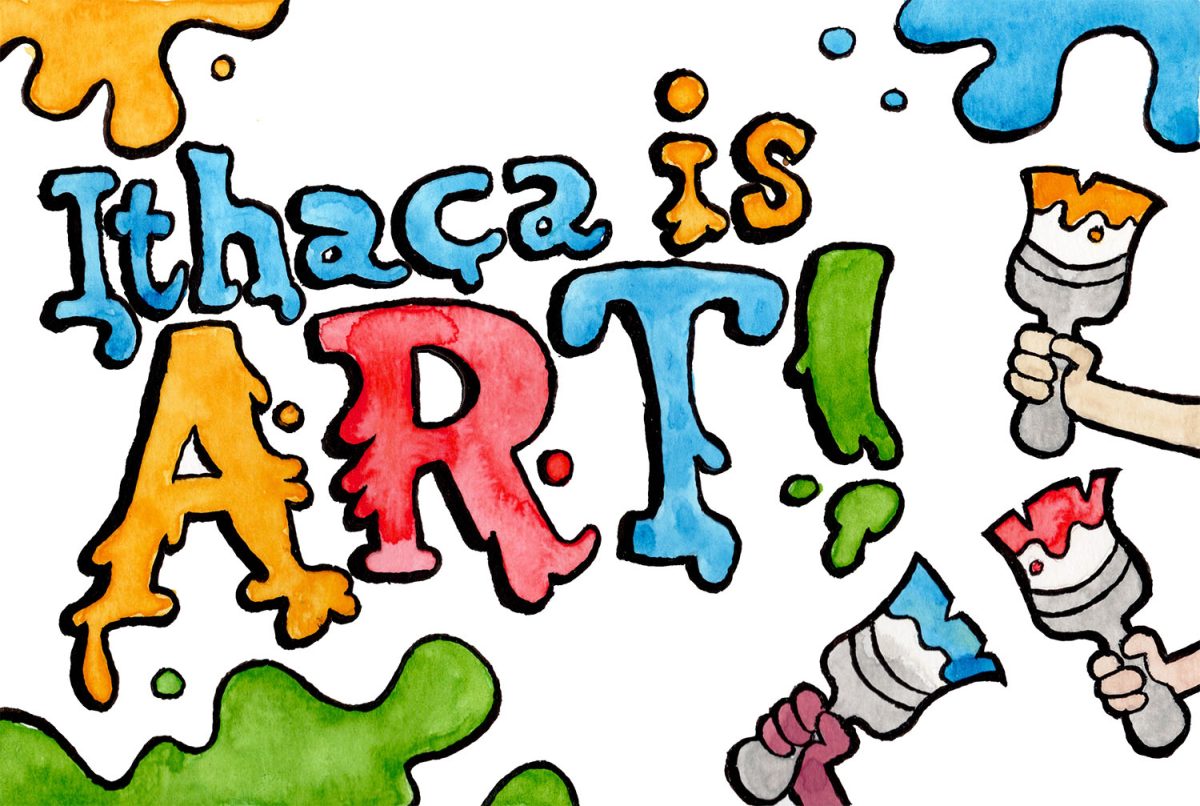Editor’s Note: The following commentary is part of a package that addresses the diversity requirement of the Integrated Core Curriculum. The students who wrote these commentaries are part of a course called Intergroup Dialogues, which is taught by Derek Adams, assistant professor in the Department of English, and Sarah Grunberg, instructor in the Department of Sociology. The other commentary can be found here.
Dear Ithaca College administration,
On the website for the Integrative Core Curriculum, diversity is defined as a concept that “encompasses multiple dimensions, including but not limited to the social and political constructions of race, culture, nationality, ethnicity, religion, ideas, beliefs, geographic origin, class, sexual orientation and identities, gender, gender identities and expressions, disability, and age.” Diversity courses are designed to provide students with new perspectives of the world. Although well-intentioned, this line of thinking is far from perfect — in fact, we found multiple issues with the “diversity” perspective of the ICC.
The first problem is the college’s use of the word diversity. “Diversity” is defined as such a vague term that it becomes virtually meaningless. The college uses the word “diversity” as a sort of social justice buzzword to qualify its apparent awareness of social issues, despite having numerous problems involving its inclusion of students with marginalized identities. The diversity credit in the ICC is never explained to students as anything more than a requirement, and because of that, the importance of diversity is often lost.
By providing students with a different perspective “through the eyes of those different than themselves,” Ithaca College believes that the diversity requirement prepares a student for the real world. It is unrealistic to believe that students will be completely surrounded by like-minded individuals who all share the same life experiences once they enter the workforce. By requiring students to learn about diversity, students are educated on experiences distinctly different from their own, and as a result, they are prepared for what life after graduation is likely to offer. However, it would be impossible for students to be completely prepared for such real world experiences with a single course. To list so many facets of diversity and yet only require one course is hypocritical, because it is unreasonable to assume that one could learn about the many dimensions of diversity listed by the college in only one course.
We propose three changes to the diversity requirement to make it a more effective program within the ICC. Our goal for these changes is that students will leave Ithaca College with a strong understanding of the importance of diversity in their lives, instead of taking diversity courses solely because they are required to graduate. First, instead of requiring one course in diversity, students would be required to take four, one class at each level (100, 200, etc). Ideally, students would take one diversity class every academic year. By increasing the educational rigor within each course, students have the ability to engage with perspectives in diversity at varying levels of depth. Requiring more than an introductory course ensures that the student becomes actively engaged in the subject, instead of simply passing a class.
In addition to requiring multiple diversity courses, each course should offer an intersectional approach to whatever aspect of diversity is in focus. For example, a Women’s and Gender Studies course would need to address issues of race, class, religion, and other aspects of diversity to qualify as a diversity-designated course. This would allow students a broader understanding of the intersectionality of identities, which can be applied to all areas of their life.
Finally, out of these four classes, a student should take at least one that is directly relevant to their major. For example, a Park student might take a class on the representation of race and other underrepresented categories in media. This would help students not only understand the significance of diversity in their lives, but also its relevancy in their specific field of study.
The intent behind the ICC has some foundation, but its application is flawed. Without proper acknowledgement of the importance of diversity or critical discussion about its meaning, the ICC is not as effective as it could be with these changes. Students should be able to deal with people from many different backgrounds, but with the current implementation of the ICC diversity program, students will not come away with the intended understanding of the importance of diversity in their lives.













